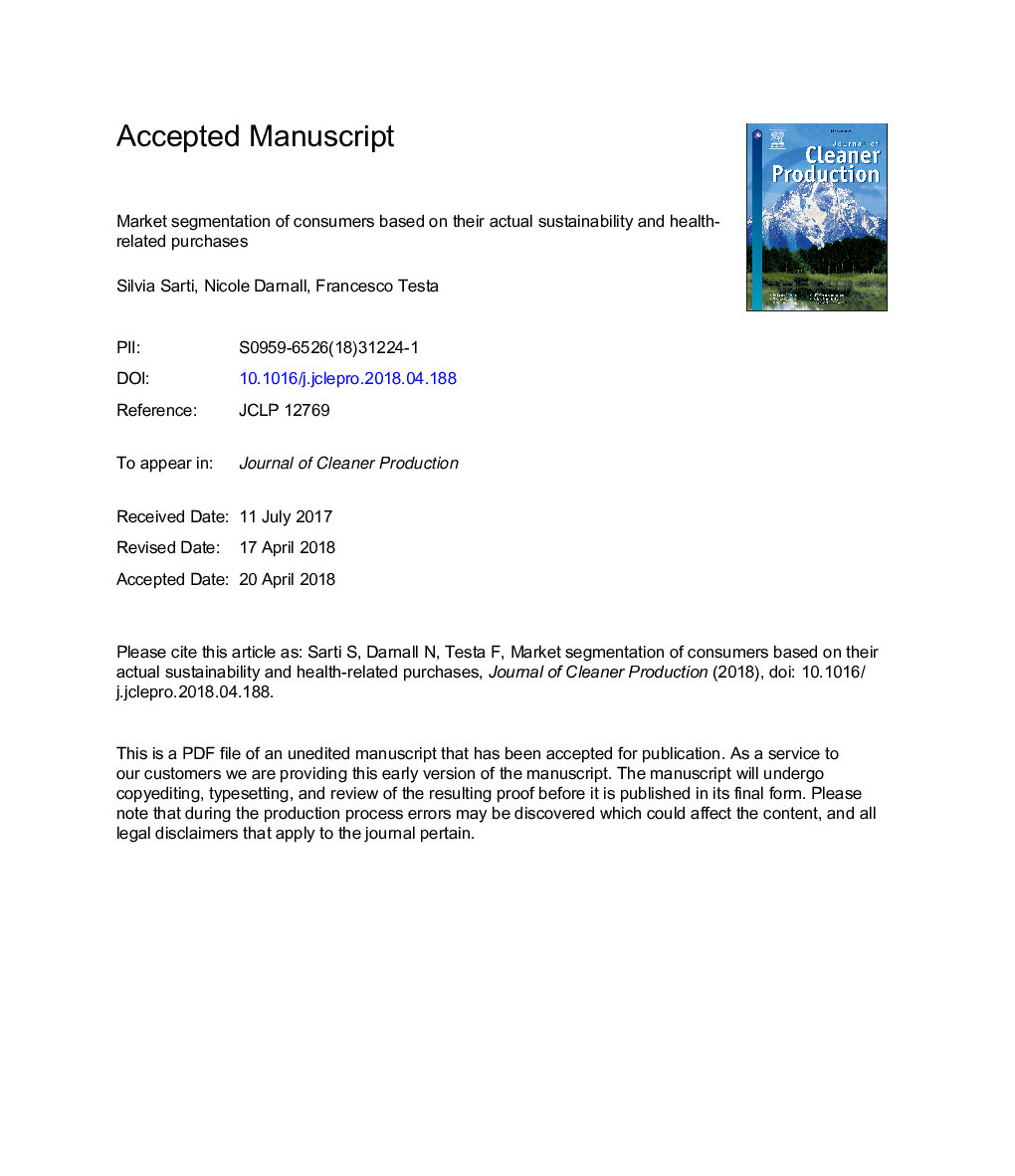| Article ID | Journal | Published Year | Pages | File Type |
|---|---|---|---|---|
| 8094518 | Journal of Cleaner Production | 2018 | 31 Pages |
Abstract
Previous research on sustainability and health-related product labels has sought to develop segmentation frameworks based on consumers' self-reports. However, consumers are likely to overstate the effect that these labels have on their purchasing behavior. Moreover, existing consumer segmentation frameworks do not distinguish among product labels based on whether they offer public benefits (e.g., environmental benefits, animal welfare, social equity) vs. private benefits (e.g., cost savings, health benefits) vs. both. This article addresses these gaps by 1) developing a consumer segmentation based on consumers' actual purchases of sustainability and health-related products and 2) differentiating product labels based on the benefits they offer - public, private or both. Using cluster analysis, it assesses the actual daily consumption of 132 Italian consumers over 30 months and more than 370,000 transactions. The results indicate three segments of consumers: collectivists, individualists and indifferents. Moreover, the findings show that consumer segments are affected differently depending on whether a product label promises either public benefits, private benefits or both.
Keywords
Related Topics
Physical Sciences and Engineering
Energy
Renewable Energy, Sustainability and the Environment
Authors
Silvia Sarti, Nicole Darnall, Francesco Testa,
